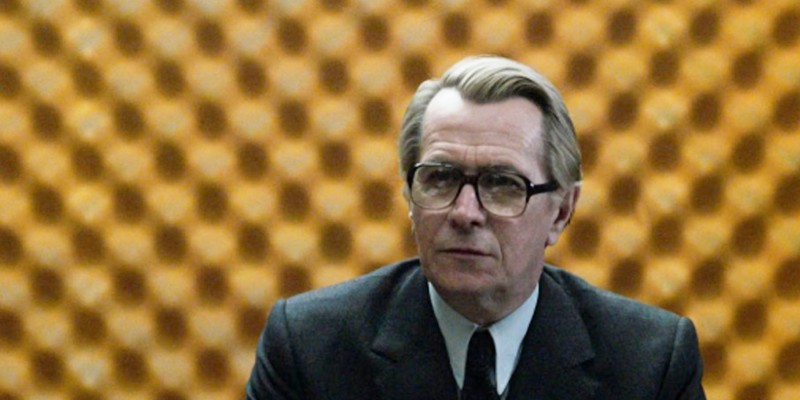As a kid, I broke what I like to think was a normal amount of rules. There was the time in kindergarten when we were sitting on the rug for storytime, and the boy in front of me kept leaning back against my legs, even when I asked him to stop, and eventually I got so annoyed that I lifted my legs and gave him a hard kick in the back. This did stop his leaning, although it also resulted in a stern reprimand from the teacher.
Then there was the time in eleventh grade when I was sitting in the back of the classroom, and our math teacher asked the class a question, and, feeling sassy that day, I responded with some snarky answer. This math teacher, an older Brit whom no one would ever accuse of political correctness, turned around, stared daggers, and threw the chalkboard eraser at my head. I ducked; it bounced off the wall behind me; I didn’t mouth off to him again.
But as I got older, the consequences to rule-breaking got more serious. Money is involved; so is a permanent record. Parking tickets, speeding tickets, citations for underage drinking, penalties for underpaying your taxes. Between the discomfort of these consequences, and the maturation of my prefrontal cortex, I developed a sense that, generally speaking, when one wanted to be a functional adult in society, one ought not break the rules.
And then I began to read spy fiction.
**
Spies live a strange life. Consider the CIA officer stationed abroad in, let’s say, Cairo. They might be there under diplomatic cover, meaning that they tell the Egyptian government they are an employee of the State Department; or they might be there under non-official cover, or “deep cover,” meaning they pretend to be a journalist, or a backpacker, or an art dealer, or any number of other things. Either way, this CIA officer is deliberately and purposely breaking Egyptian law, and doing so with the backing of the U.S. government.
Intelligence services are filled with people who are comfortable breaking the law. A law-abiding spy isn’t a very useful spy. Their life is a carefully constructed lie, one that might blow up at any moment. This makes spies a lot of fun to read about, and to watch. The glamorous action of James Bond, the intellectual subtlety of George Smiley, the manic single-mindedness of Carrie Mathison, the ideological hardness of Elizabeth Jennings. I was hooked. I couldn’t get enough!
At this point, I was beginning my own writing career. My first few novels played around with different genres; it took me a while to summon the nerve to tackle spy fiction myself. Part of that nerve-summoning involved doing a lot of research. In reading the memoirs of former undercover CIA officers, a pattern became clear. These people were, almost without exception, rule-breakers.
In his memoir The Art of Intelligence, Henry Crumpton describes his youthful travels, before he joined the CIA: “By the Grace of God, I eluded law enforcement for immigration violations, smuggling, black-market currency trading, violent public disorder, and other misdeeds. It was a great year abroad, an instructive free-form intro to global risk and reward.” Later, when he’s going through CIA training, doctors evaluate him and describe him as “unconventional, semi-rebellious,” having “antipathy for authority,” but also “loyal to those he serves.”
The spy and the criminal have much in common, but this last part is a fundamental difference. The spy breaks the rules not just in service of hedonic pleasure or material self-advancement, but in service of an institution or ideology. If the CIA hires you, they expect your loyalty to America, and what America stands for, to serve as guardrails on your rule-breaking tendencies.
But it strikes me that, even with those guardrails in place, both the spy and the criminal are chasing after the same feeling. In her (controversial, NDA-violating) memoir Life Undercover, Amaryllis Fox describes her work for the CIA: “For the first time in my life, I feel the high of not just observing the world but actually changing it … It’s as though anything that happens anywhere on the planet is happening to us. As though our every move is important. As though we are important. And it’s addictive.”
Crack open one of these CIA memoirs and you’re guaranteed to find at least one story about a time when the author had to go rogue, ignore her superiors, follow her gut. Once a rule-breaker, always a rule-breaker! But these stories pretty much always have happy endings; and those happy endings are, of course, a post hoc justification for the rule-breaking in question. I’m not sure I ever read a memoir in which the author recounted a time he disobeyed his orders and the result of that disobedience was disaster.
Another dimension generally missing from these nonfiction accounts: it was rare for these authors to seriously interrogate the loyalty they had sworn to the United States. It was rare for them to question whether all of this secretive, shadowy, morally expensive work had actually made the world a better place. These spies were willing to break every rule, except for the most primary of rules: that America was the good guy, full stop.
This might be asking too much of nonfiction. Their real-life feelings about their country might be too complex, too murky, too contradictory to make for a compelling story.
But this—thank god!—is why we have fiction.
**
It might seem odd to say that George Smiley, a character consistently depicted by his creator, John le Carré, as round, toad-like, and “breathtakingly ordinary,” was the spy who taught me the most about rule-breaking. Smiley is an intelligence officer at The Circus, a thinly veiled version of Britain’s MI6. But not for him are swashbuckling episodes of public disorder and adrenaline-chasing adventure. His life is quieter and more sedate—but for my money, it involves far more meaningful risk than any of the adrenaline-chasers.
In his long career as a spy, Smiley grows painfully intimate with shortcomings of his profession. Just because a group of men and women swear an oath of loyalty does not mean these men and women are immune from human failings. This includes the men and women in the uppermost echelon, the ones who determine the boundaries of that loyalty. A spy lies and manipulates and bribes and blackmails in service of that loyalty. But what if the loyalty itself begins to seem hollow?
In Smiley’s People, the conclusion to Karla Trilogy, the aging spy reflects:
“He had toiled in back rooms while shallower men held the stage. They held it still. Even five years ago he would never have admitted to such sentiments. But today, peering calmly into his own heart, Smiley knew that he was unled, and perhaps unleadable; that the only restraints upon him were those of his own reason, and his own humanity.”
It has always struck me as a fairly terrifying notion, that the only rules you really have to follow are the ones of your own reason, your own humanity. There have been many times (many times!) when I thought my reason was telling me to do something, and the result was disastrous. So you place your faith in the rules, in the institutions, seeking protection from your own flawed and faulty self. But in retrospect I can see that, in those moments of disaster, it wasn’t really reason or humanity guiding me. It was ego, it was fear, it was greed.
The older you get, the more you see of life, and the more you learn to tell the difference. It’s part of why I love to read novels. I learn from characters who are different than me, who are older than me, who are forged by another person’s moral experiences. When I first fell in love with spy fiction, I wasn’t expecting that it would teach me so much about myself. No one would mistake me for a rule-breaker! And yet I find myself thinking, all the time, about how George Smiley moves through the world. About his profound ordinariness; about his ability to live in the gray space between honorable loyalty and self-respecting individualism. I wonder if I can become more like him. I re-read those lines from Smiley’s People, when, with great peacefulness, the wise old spy thinks: “I invested my life in institutions—he thought without rancour—and all I am left with is myself.”


















